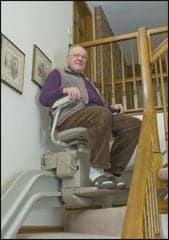
The researchers then gathered data using Multiple Sleep Latency Tests (MSLT), actigraphy and sleep diaries. All participants also underwent magnetic resonance imaging (MRI) and comprehensive psychiatric and neuropsychological assessments before and after the intervention. Study results suggest that 6 weeks of morning bright light therapy demonstrated a distinct decrease in subjective sleepiness. The improvement was also linked to improvements in the propensity to fall asleep and nighttime sleep quality. Bright light therapy also impacted depressive symptoms.
The study authors add that it has been estimated that at least 50% of TBI patients experience some form of sleep disturbance post-injury. Sleep has also been spotlighted as a key component for brain plasticity and recovery, researchers add.
Mareen Weber, PhD, instructor in psychiatry, McLean Hospital/Harvard Medical School in Belmont, Mass, emphasizes that, “Improving sleep following mild traumatic brain injury could prove critical to maximizing recovery from injury.”
Weber adds that results indicate, “changes in brain activation during a demanding cognitive task, suggesting that bright light treatment might yield changes in brain functioning.”
Source: American Academy of Sleep Medicine




